Activism as a Tool for Improved Mental Health
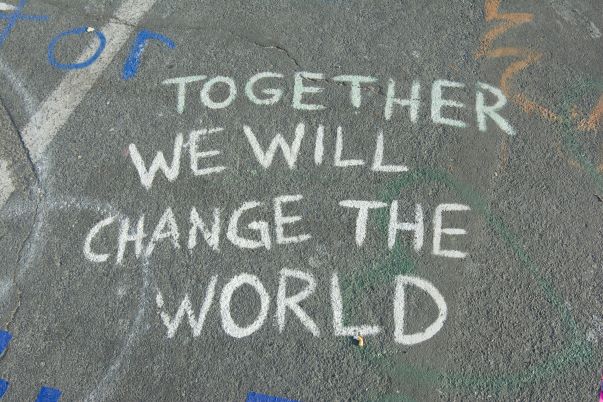
Photo by Priscilla Gyamfi on Unsplash
In the current state of the world, many people are feeling lost, threatened, and powerless in the face of significant human pain and suffering. There’s a growing sense of imbalance and alienation. This is a time when community and connection is vital. Unfortunately, many people are experiencing increased feelings of isolation and loneliness instead. In fact, America has been deemed to be experiencing an ongoing epidemic of loneliness.
It doesn’t take much searching to find faults and flaws in the surrounding world. The politicians say one thing, and then act in opposition in the same breath. It’s disorienting to say the least. It can feel impossible sometimes to find any logical sense in the current political climate.
Add to that the selectivity of privilege based upon race, class, gender, and sexual orientation. Many live within a power structure that dictates who is and who is not allowed access to food and water, health care, education, and freedom of expression in all of its manifestations.
Many societal systems are built on the oppression of minorities and marginalized populations. There is no shortage of evidence to elucidate the destructive effects of this oppression and discrimination; primary among them being the negative impact on people’s physical and mental health.
This is an increasingly polarized time that is dividing individuals and communities while escalating feelings of isolation and fear amongst the general population. It can lead you to feel depressed, enraged, combative, alone, violent, ashamed, and hopeless.
Engaging in community and activity, for instance through activism, can help redirect these feelings into something productive. Sigmund Freud termed this redirection of chaotic and unacceptable emotions “sublimation,” which is a healthy defense that promotes well-being.
A State of Despair
Amidst the polarity of discourse, people can get lost inside of finger pointing and blame. You wind up being corralled into a mindset where othering becomes a rigid tactic of defense. As a result, creativity, connection, and nuance get lost. Relationships become jeopardized. Constructive dialogue ceases to exist.
When you live in a culture that forces you to take sides, it becomes easier to get entangled in the fray of emotions and reactivity. You might lose your individual point of view or feel ashamed for thinking independently. The pressure towards conformity may lead you to feel defensive and on edge.
Defensiveness leads to aggression, leading to dissonance and sustained feelings of alienation. This loss of perspective is confusing and disorienting. In the chaos, the idea of basic human rights gets absorbed and clouded by narratives that exist in the extremes.
Activism as a Possible Antidote
Increased awareness of what is leads to the questioning of what could be; discontent with the status quo leads to unrest and action. It is through action that change happens.
Activism takes on many forms. Engaging in activism, in general, can help to channel feelings of hopelessness and disempowerment into something tangible and productive. It pulls individuals out of isolation and into community with others who are having a similar experience. It inspires critical discourse as a means of expanding knowledge and is directed towards orientation, understanding and connection.
Community building as activism is about engaging in mutual support to provide resources, clarity, and a sense of empowerment. In an isolated society where the system gains benefit from divisiveness and competition, activism becomes the antidote.
In an inherently oppressive system, a certain portion of the population is going to be marginalized. The more awareness you have of this set up, the less tolerant you may feel; and less inclined to support it.
Intellectual engagement increases awareness and compels action, and collective agency becomes a tool for change.
This is how knowledge becomes power.
Critical consciousness happens when all people have access to education and knowledge, including those living in the margins who are typically deprived of equal opportunities.
Paolo Freire stated, in his famous work entitled “Pedagogy of the Oppressed”:
“There is no such thing as a neutral educational process. Education either functions as an instrument that is used to facilitate the integration of the younger generation into the logic of the present system and bring about conformity to it, or it becomes “the practice of freedom,” the means by which men and women deal critically and creatively with reality and discover how to participate in the transformation of their world.” (Freire, 2000, p. 34)
Of course, activism in itself can become a form of oppression and polarization. So, consider the importance of community without conformity; taking action while being open to debate; fostering dialogue not silence; and remaining open and curious as you would wish others would be to your cause.
Take Action
Whether you decide to engage in peaceful protest, build community, make art, educate, engage in critical discourse, or anything else you may come up with; consider these practices as a part of your action…
Practice attunement. Attunement is a word that comes up a lot in therapy settings, and for good reason. It plays a critical role in connection and understanding. Attunement is relational and it requires a mindset of openness to what others are experiencing while letting go of your own narrative that could block genuine connection.
Be Curious. If you’re struggling to understand what others are experiencing, try being curious and check in with your internal responses. Are you being curious, or are you projecting your own narrative onto them? Ask yourself this question when you’re listening to someone who is trying to explain themself to you. If you find yourself making assumptions or getting lost in your own internal response, reset your intention to be more open.
Set an intention. Doing so can sharpen your attention, particularly when there is a lot going on around you and emotions are running high. Intentionality helps you to stay focused on what’s important.
Accept what you can and can’t control. Inside of the current state of the world, it’s easy to become preoccupied with feelings of disappointment in others; sometimes that includes those whose relationship you value. Ask yourself what lies within your control and what doesn’t. As much as you might want to change someone else’s mind, you’re unlikely to succeed in doing that. But you can put your energy into tolerating difference without needing others to be just like you.
Tolerance is not the same as passive acceptance. It’s more about recognizing what you can’t change and focusing your energy on what you can. It’s okay to be angry about what you see happening in the world. It’s what you do with that anger that matters.
Given the current conditions of the world, engaging in activism and developing a practice of attunement and openness can help you cultivate a sense of wellness. Sublimating your anger and sense of disenfranchisement into action can help you feel empowered and part of the solution. It also has the added benefit of possibly helping others and creating the change you wish to see.

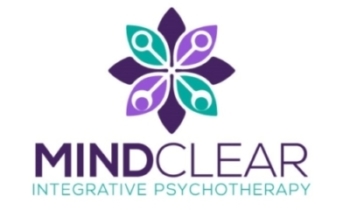
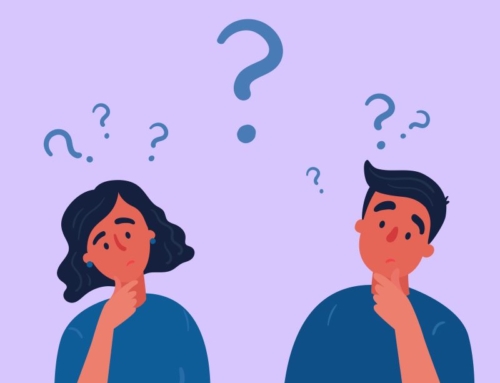
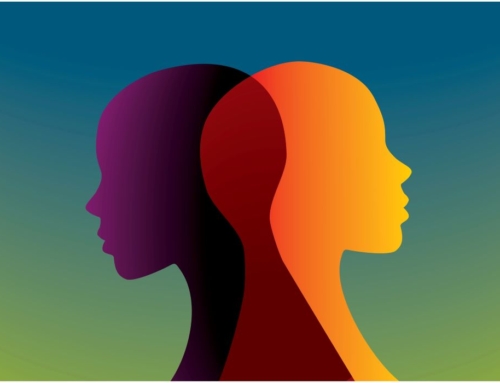

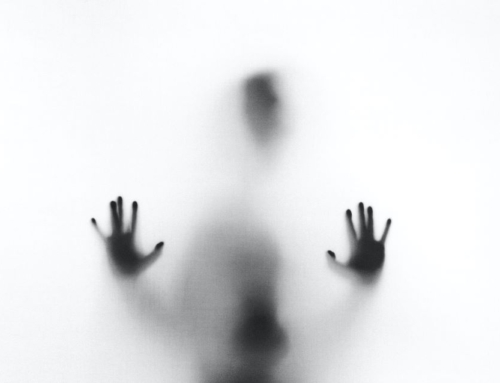


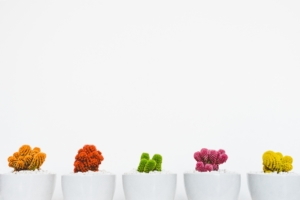

Leave A Comment